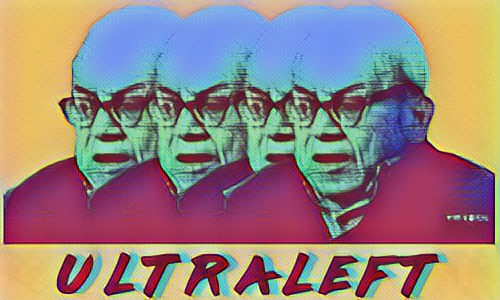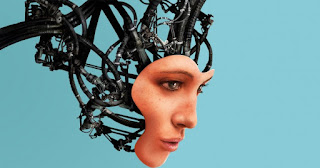Citizen, Mystic, Prophet, Psychologist
Rousseau - The Citizen
Rousseau’s body lay in the Pantheon in Paris where it had been placed by the Jacobins as the father of the French Revolution. Although he always signed his books Citizen of Geneva, his work The Social Contract inspired generations of Democrats and radicals. He famously declares that “Man was born free, and he is everywhere in chains.” Rousseau gave the name citizen to those who make the laws they are subject to, in what he regarded as the only legitimate form of politics. That is the only way to reconcile freedom with subjection to the law, where each individual “obeys no one but himself, and remains as free as before.”
Rousseau set out to legitimize strong government rather than to limit it. According to Rousseau, sovereignty should reside with the people, in the form of the general will, which ought to be the source of the laws legitimacy. It is only formed when when citizens ask themselves what is in the common good rather than their own particular, selfish, good. Rousseau argues that because such public-spiritedness is wholly unnatural, it must be cultivated by institutions and practices that turn men into citizens via civil religion.
Hegel - The Mystic
According to Hegel, all of human history reflects the divine mind (what he called ‘Geist’ or ‘Spirit’) in the pursuit of human freedom. History is theodicy - that is the story of divine justice. Every historical event in it’s own way marks the progress of reason and freedom although this is usually only apparent in retrospect.
Hegel’s philosophical method, called dialectic is better known than any of his philosophical theories. According to Hegel, when two ideas seem to be in opposition (as thesis and antithesis), we can often reconcile them by recourse to higher level synthesis. One example is the contrast of the Ancient Greek polis and the modern constitutional state. For Hegel, there is no way to reconcile the competing claims of the state (the thesis) and of the individual conscience (the antithesis). It is only with the rise of the universal Christian principle of the inviolability of conscience as recognized by the modern liberal state, that these tragic conflicts can be overcome.
For Hegel, habits and customs are essential for genuine social freedom, but only if they actualize autonomy. Hegel proposes instead a theory of rights in context, of rights defined not as abstract principles but in the lived reality.
Tocqueville - The Prophet
For Tocqueville, as for Hegel, civil society was a sphere of private entrepreneurship and civilian affairs regulated by civil code. He begins his classic book Democracy in America praising the New England town meeting as the worlds best example of democratic virtue in action. For Tocqueville, American towns posses the supreme virtue of teaching citizens how to make honorable use of their freedom by governing themselves.
Tocqueville wanted every democratic citizen to act with civic virtue of these idealized nobles: an aristocracy of everyone. He claimed that the emerging democratic legal and moral equality is the irresistible will of God. Tocqueville foresaw two primary threats to his beloved political liberty: governmental centralization and market consumerism. He warned of a future in which the democratic herd fattens itself on private luxuries while being shepherded by remote powers - a vision of what he called a soft despotism.
This is evident in Nietzsche’s vision of the last man, that ineradicable being that knows no ardent desires, has no lasting ambitions and aspires to nothing beyond sating the transitory and, in substance, animalistic pleasures of the day.
His life mission was to warm aristocrats that democracy was inevitable and to warn democrats that political liberty was not inevitable. Political liberty must be exercised in civic virtue. For Tocqueville, it always makes sense to look to civic virtues as a set of habits acquired from co-operating with ones neighbors, learning to tolerate differences and reaching solutions to common problems.
Whereas others disagreed, Tocqueville was insistent that modern democracy is a Christian ideal. In a Christian ethics of citizenship the ideals of universal equality, rights and liberty were the gift of Christianity. Anticipating Nietzsche, he argues that Christianity is actually the origin of our democratic ideals.
Nietzsche - The Psychologist
A philosopher that that takes a radically different approach to the ideas of freedom and equality, and arguably even throws them out altogether is Friedrich Nietzsche. Not far from Rousseau, Nietzsche was a great critic of modernity and the Enlightenment movement. He rejected the ideas of the state of nature and God. Though he accepted history, he thought it was irrational and nondialectic, unlike Hegel.
The musings of Tocqueville and Nietzsche display a profound concord with respect to the democratic march of history and what it signified for humanity, a concord all the more remarkable given Nietzsche’s indefatigable disdain for democracy and Tocqueville’s qualified reverence for it. For both thinkers, democratic man was not superior to his aristocratic antecedent; the democratization of humanity was not synonymous with progress; and the democratic future, far from being an unambiguous bastion of hope and progress, was a source of dread and terror to those who unflinchingly and perspicaciously peered into it.
Rousseau’s lawgiver is required to recuse himself from the people he founds, lest he lord over them; Hegel’s historical process synthesizes man’s dichotomous nature, thereby unifying it, and does so, moreover, in that dialectically and democratically curious fashion that gives victory to the slave rather than the master.
But it was precisely in those neglected types that Nietzsche and Tocqueville beheld a richness. It was moreover in the aristocratic type that both thinkers divined the genesis of man; the origins of a creature that transcended its animality. The danger that both thinkers espied was this: because it is to homo demoraticus that the age belongs and because this type considers itself the vertex of the evolutionary process, other, nondemocratic types are regarded as aberrations in need of correction or, that failing, condemnation.
It is a madman that is Nietzsche’s prophet of a new age who announces the ‘death of God’ to the uncomprehending masses in his book The Gay Science. The nihilism that he believed must follow in the wake of the West’s loss of faith in the Christian God was something he thought could and should be overcome. The antidote that he prescribed for this condition was the supermen, exceptional geniuses whose overflowing creativity and will-to-power only flourish when we released from the straitjacket of morality.
Nietzsche saw a unique opportunity to establish a new aristocratic non moral values suitable for masters rather than slaves. It would be the future creation of a higher form of species that would dominate, the so called supermen. The point is that these free spirits would conform to no existing or established rules or restrictions that might interfere with their overflowing creativity and natural dominance. Impelled by a restless will to power these Olympian individuals would create great things on the blank and boundless canvas.
The main goal and purpose of the supermen or artist-tyrants is to create culture and values to fill the void left by Christian morality and politics would be subordinated to that goal. Instead of a reversal of the slave/master morality, the new values must be its dialectic. As Rousseau, Hegel and Tocqueville want an esteemed citizenship for everyone to pursue the highest civic virtues. Virtues to be remade. According to Nietzsche, the superman must first subdue himself before imposing his will on the external world. He must be a warrior on the internal battlefield of the soul and engage in a process of self-overcoming, shaping himself psychologically before he is in a position to shape the external world. After the dialectic, the resultant warrior-philosopher is of a higher order than the slave and master, democrat and aristocrat. As we shall see a warrior-philosopher of Gandhian conception.




Comments
Post a Comment